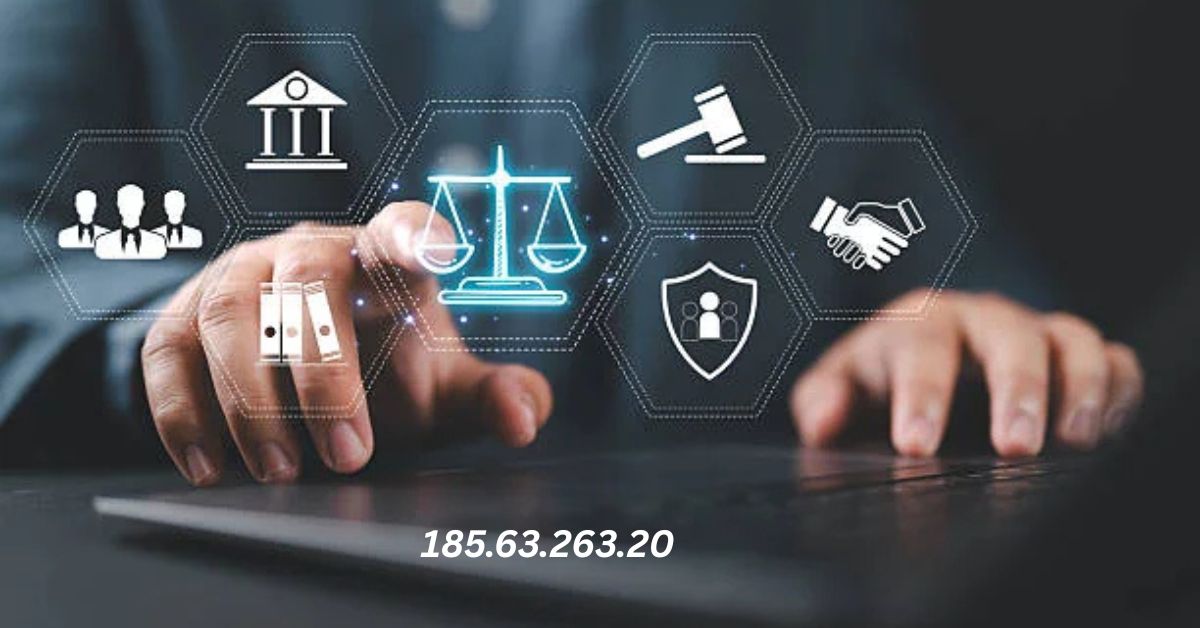Have you ever wondered what lies behind the numbers of an IP address? Take a closer look at 185.63.263.20, a seemingly random string of digits that holds more significance than you might think. In our increasingly digital world, understanding IP addresses can help demystify various aspects of online interactions and security.
Whether you’re curious about how these numbers function or concerned about your online privacy, this article will unpack everything you need to know about 185.63.263.20. Let’s dive into the fascinating world of IP addresses and explore their impact on your daily internet experience!
What is an IP address and how does it work?
An IP address, or Internet Protocol address, is a digital identifier for devices connected to the internet. Think of it as a home address for your computer or smartphone. Just like how mail needs an address to reach you, data packets require an IP address to find their destination.
IP addresses come in two main types: IPv4 and IPv6. IPv4 consists of four sets of numbers separated by periods, while IPv6 uses a longer string of alphanumeric characters separated by colons.
Every device on the network receives its unique IP from the Internet Service Provider (ISP). This allows it to communicate with other devices effectively. When you send a request online—like accessing a website—it travels through various networks until it reaches the server associated with that specific IP.
Understanding this system helps demystify how information moves across our interconnected world.
Who owns 185.63.263.20?
The ownership of an IP address can often be traced back to a specific organization or entity. In the case of 185.63.263.20, it’s crucial to look up its registration details.
Typically, these addresses are assigned by regional internet registries (RIRs). They manage the allocation and distribution of IP addresses within their respective areas.
For 185.63.263.20, it’s essential to utilize databases like WHOIS for accurate information about its owner. This database provides insights into who has registered the address and how it may be used.
Often, this particular IP could belong to an Internet Service Provider (ISP) or a business that offers web hosting services. Knowing who owns an IP can aid in understanding potential risks associated with it too.
Keeping yourself informed about such details is vital in navigating online interactions safely and effectively.
Possible uses for 185.63.263.20
The IP address 185.63.263.20 can serve various purposes in the digital landscape.
One common use is for web hosting. Many websites rely on specific IP addresses to direct users to their content efficiently.
It may also function as a gateway for online services, such as streaming platforms or cloud applications, allowing users seamless access to resources and entertainment.
Cybersecurity professionals might analyze this IP address when investigating network traffic patterns or potential threats, making it an essential tool in risk assessment.
Additionally, businesses often utilize IP addresses like 185.63.263.20 for geolocation tracking, which helps them understand user demographics better and tailor marketing strategies accordingly.
These diverse applications highlight how an ordinary-looking sequence of numbers plays a critical role in everyday internet activities and operations.
Risks and concerns associated with 185.63.263.20
The IP address 185.63.263.20 can raise several red flags for internet users. One primary concern is its potential association with cybercrime activities. Malicious actors often use specific IP addresses to execute phishing scams or distribute malware.
Anonymity on the web becomes a double-edged sword when dealing with such addresses. While it allows certain freedoms, it also shelters those who exploit vulnerabilities in networks and systems.
Additionally, there’s the risk of data breaches linked to this IP address. If it’s part of a broader botnet, your personal information could be compromised without your knowledge.
Monitoring incoming traffic from unfamiliar IPs like 185.63.263.20 is crucial for network security management. Ignoring these threats may leave devices vulnerable to attacks that could have far-reaching consequences on privacy and data integrity.
Tips for protecting your online privacy and security
To enhance your online privacy, start by using strong, unique passwords for each of your accounts. Incorporate a mix of letters, numbers, and symbols to make them harder to crack.
Enabling two-factor authentication adds an extra layer of security. This means even if someone gets hold of your password, they’ll still need another form of verification.
Regularly update your software and apps. Developers frequently release updates that patch vulnerabilities hackers exploit.
Be cautious with public Wi-Fi networks. Use a virtual private network (VPN) whenever you connect to safeguard your data from prying eyes.
Review the permissions for apps on your devices. Limit access only to what’s necessary; this reduces potential exposure of personal information.
Conclusion: Understanding the importance of being informed about digital footprints
Being informed about your digital footprint is crucial in today’s interconnected world. Understanding IP addresses like 185.63.263.20 helps you navigate the complexities of online interactions and potential risks.
Your digital identity affects everything from privacy to security, making it essential to stay aware of how data flows across networks. Whether it’s protecting personal information or being cautious with online activities, knowledge empowers you to make better choices on the internet.
As we continue to engage in an increasingly digitized landscape, being proactive about online safety can help ensure that your virtual presence remains secure and private. Stay curious and vigilant; awareness is key when it comes to safeguarding your digital life.

